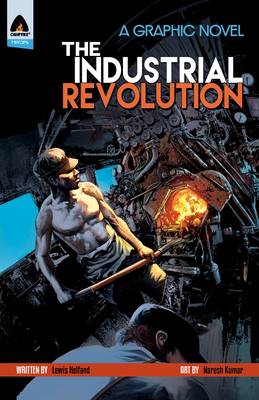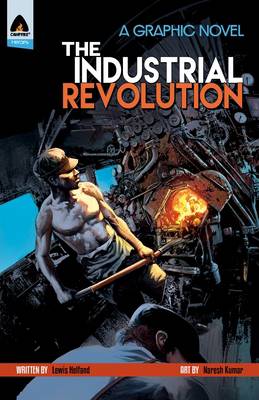
- Afhalen na 1 uur in een winkel met voorraad
- Gratis thuislevering in België vanaf € 30
- Ruim aanbod met 7 miljoen producten
- Afhalen na 1 uur in een winkel met voorraad
- Gratis thuislevering in België vanaf € 30
- Ruim aanbod met 7 miljoen producten
Zoeken
€ 20,95
+ 41 punten
Omschrijving
While we all know that large-scale industrialization began in the eighteenth century, the Industrial Revolution truly began in Germany with Johannes Gutenberg and his printing press. His innovation made it possible to mass-produce books, which spread literacy and knowledge all across Europe. It was in the eighteenth century, however, that manual labor started being replaced by what we today know as machines. First in Europe came Thomas Newcomen and James Watt and the steam engine. Then came John Kay and his flying shuttle, which led to the development of the textile industry. Then, in the United States, there was Robert Fulton and his steamboat, and Eli Whitney and his cotton gin. Finally, it was Henry Ford whose mass-produced vehicles made cars affordable to all. The Industrial Revolution continues to this day as formerly less developed countries, especially in Asia, have taken to rapid industrialization to improve their economy. Lexile Reading Level 800L.
Specificaties
Betrokkenen
- Auteur(s):
- Illustrator(s):
- Uitgeverij:
Inhoud
- Aantal bladzijden:
- 92
- Taal:
- Engels
- Reeks:
Eigenschappen
- Productcode (EAN):
- 9789381182284
- Verschijningsdatum:
- 6/06/2017
- Uitvoering:
- Paperback
- Formaat:
- Trade paperback (VS)
- Afmetingen:
- 160 mm x 262 mm
- Gewicht:
- 136 g

Alleen bij Standaard Boekhandel
+ 41 punten op je klantenkaart van Standaard Boekhandel
Beoordelingen
We publiceren alleen reviews die voldoen aan de voorwaarden voor reviews. Bekijk onze voorwaarden voor reviews.











